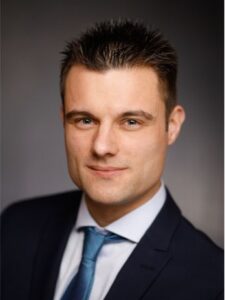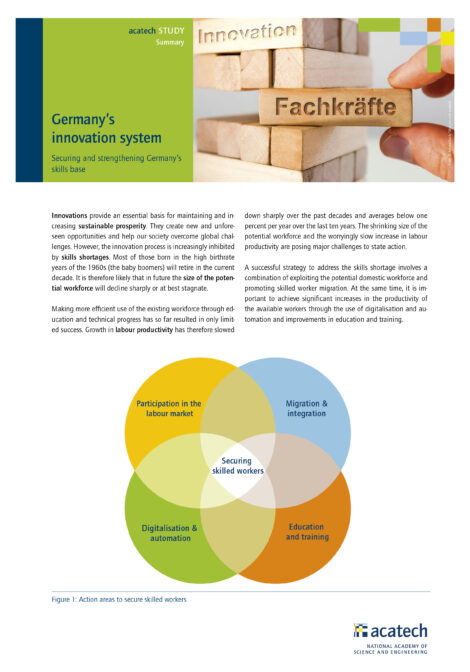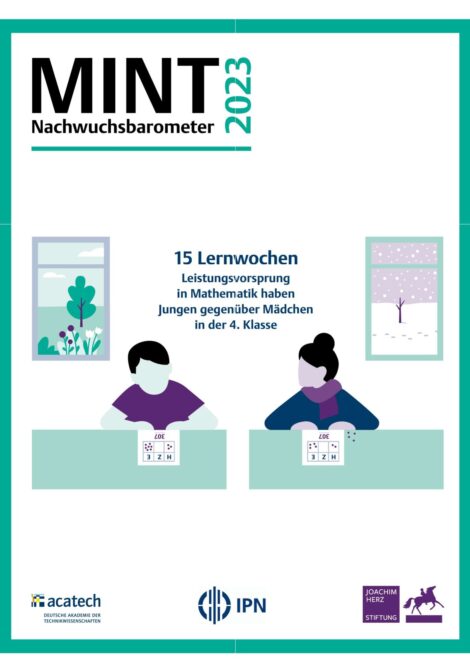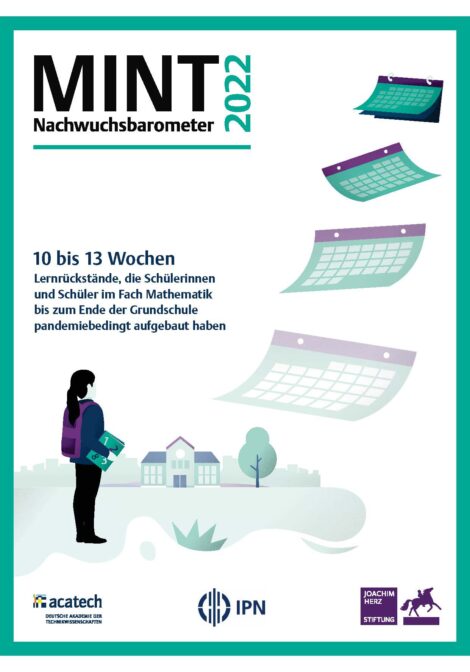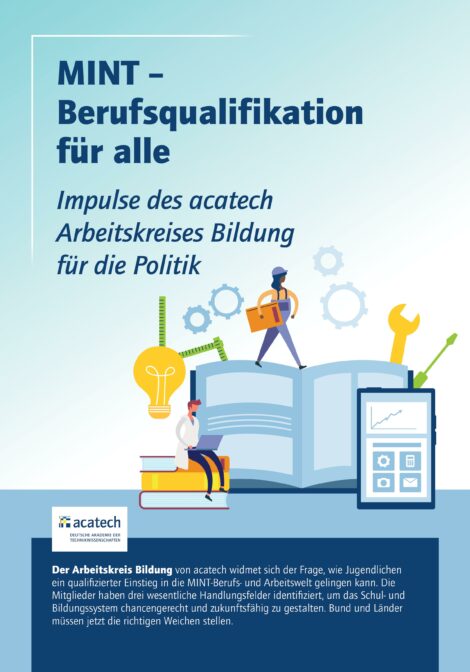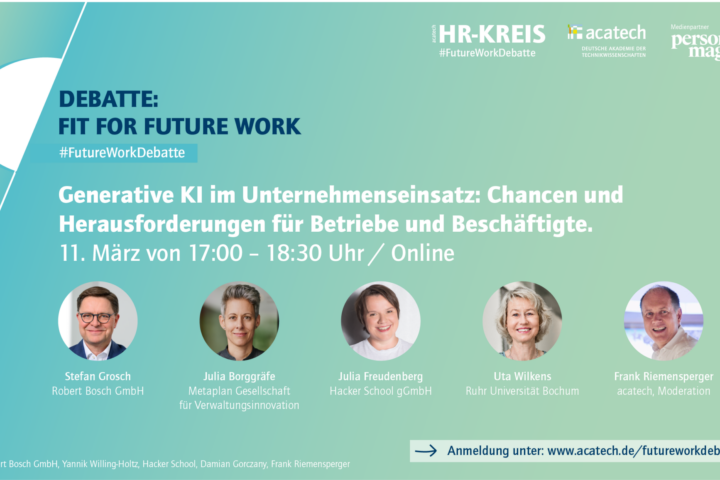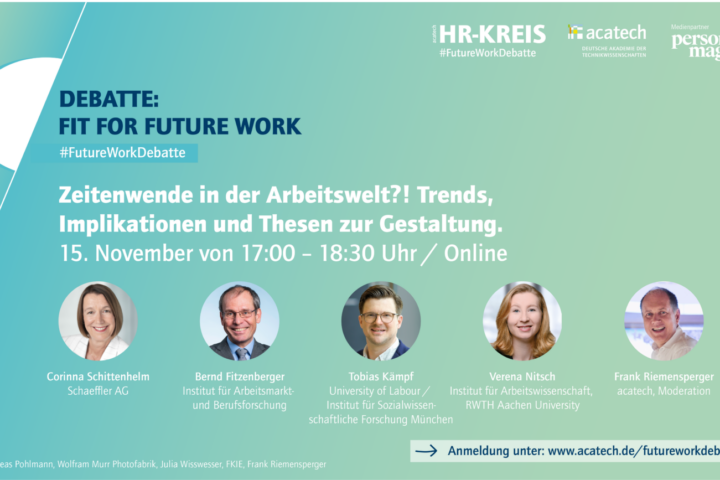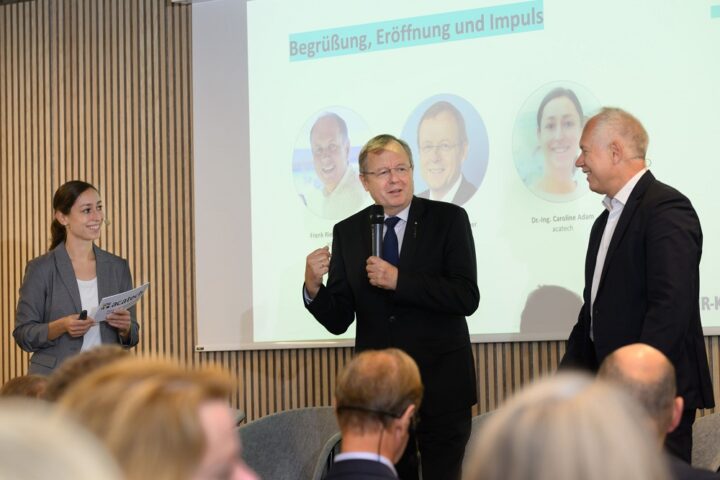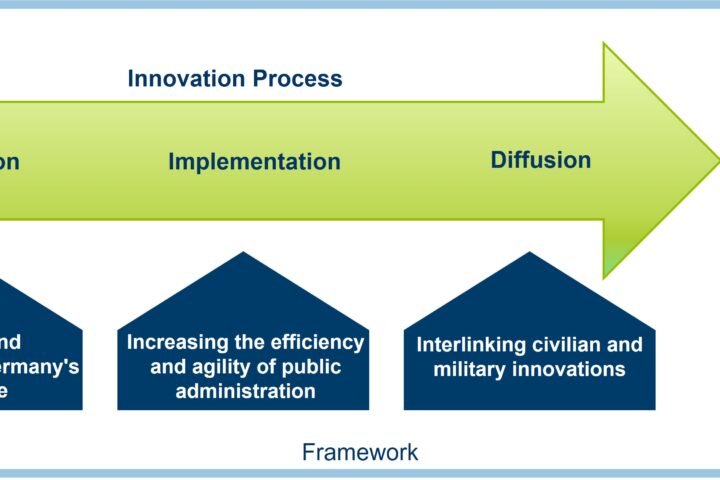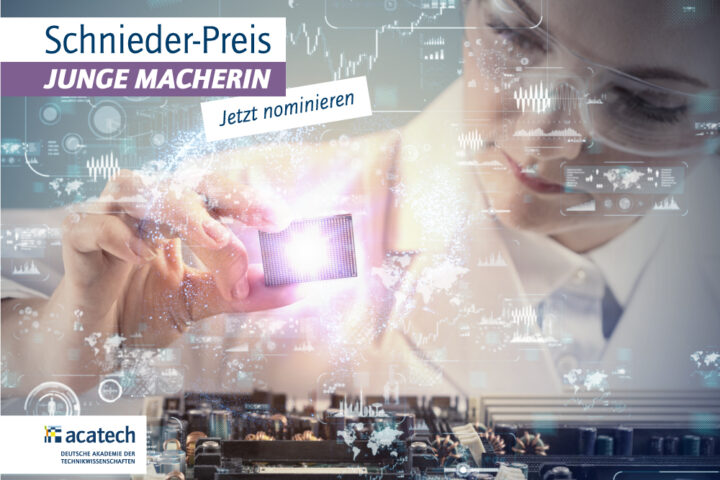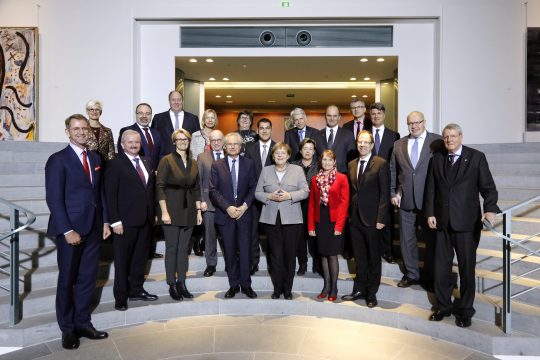Through its contributions to the public and policy debate on the future of work and education, acatech aims to tackle the challenges of demographic change and digitalisation and turn them into opportunities for innovation in Germany.
Achieving a quantum leap in productivity
Germany is facing a widening demographic gap. The baby boomers are reaching retirement age and we could soon have a shortfall of around ten million workers. Against this backdrop, acatech is pursuing answers to three key questions: How can Germany achieve a quantum leap in productivity that allows it to maintain the same economic output with a smaller workforce? How can we harness the opportunities offered by the digital transformation in order to promote prosperity, employment and good jobs? And how can we update our education system so that it provides young people with the skills they will need in their future careers?
Our work focuses on three key themes:
- In the future, innovative ways of working will be characterised by a strong emphasis on individual employee choice and responsibility, agility and new forms of human-machine interaction.
- Training is the key to the digital transformation. Germany still has much to do, especially in the field of lifelong learning.
- Modern STEM education (Science, Technology, Engineering and Mathematics) is key to providing young people with the skills they need to help shape the social and technological transformation in an informed, empowered and responsible manner. Schools, universities and extracurricular settings must make the leap into the digital age as quickly as possible.
In the light of recent developments, we must also consider the medium- and long-term impacts of the coronavirus crisis on the worlds of education and work.
HR directors discuss the future of work
acatech is committed to improving the underlying conditions and overall framework for innovation in Germany. A highly-skilled workforce and a tech-savvy public both have a vital role to play – a view shared by the HR directors of major German companies and academics who make up the HR Working Group – Forum for HR Directors on the Future of Work.
Young talents in the STEM subjects
The Barometer of Young Talents in the STEM Subjects is an annual nationwide report that discusses the latest trends and presents the key facts and figures for young talents in the STEM subjects. Together with the members of the Education Working Group, we explain how schools, universities and extracurricular settings can make the transition to the digital age and what we must do to achieve a lasting improvement in Science, Technology, Engineering and Mathematics education. In the Nationales MINT Forum (German STEM Forum) founded by acatech and the BDA/BDI initiative “MINT Zukunft schaffen”, acatech and over 30 leading institutions from science and industry are working to improve the quality of STEM education and bring it up to date with the requirements of today’s world



